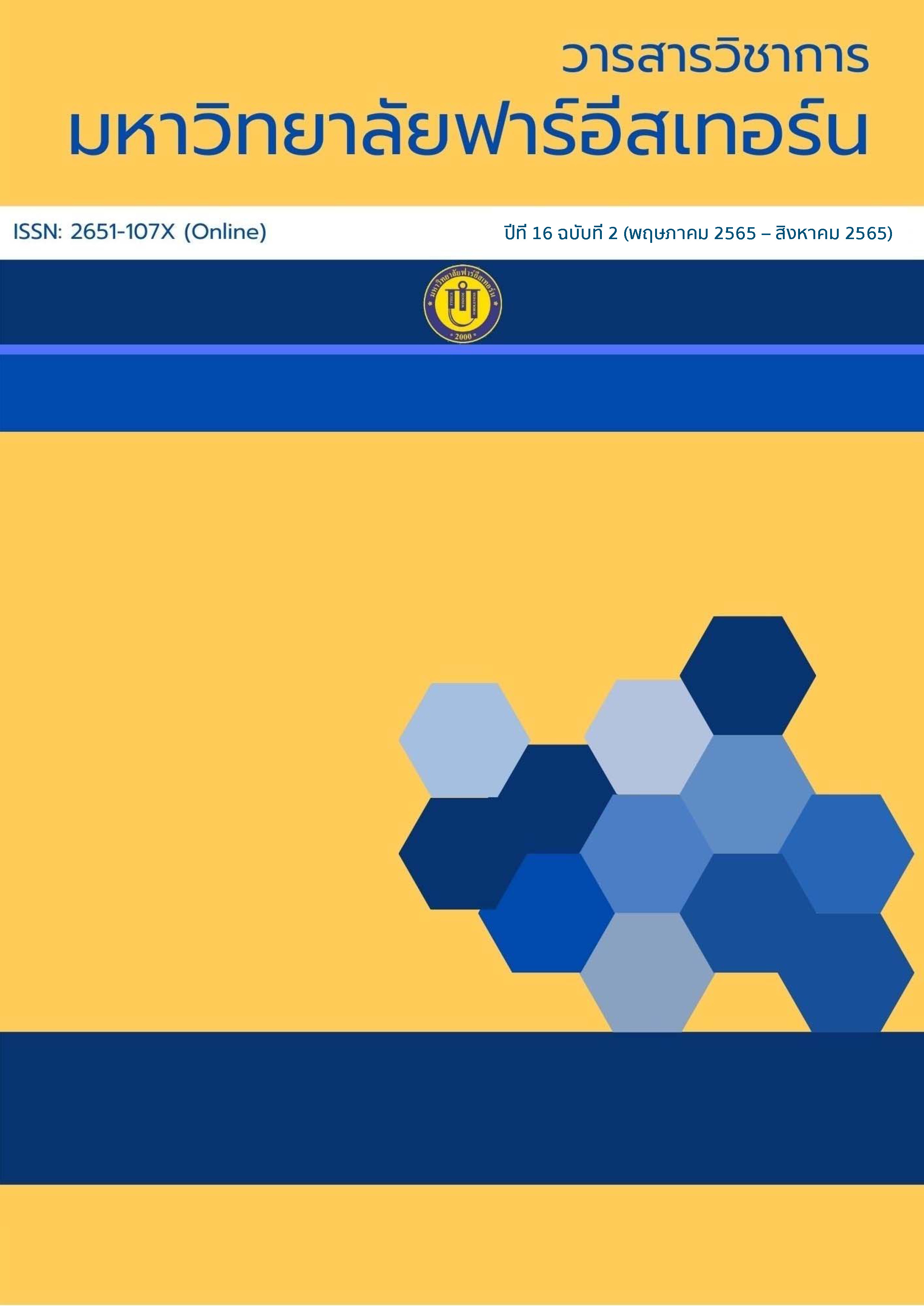Designing Teaching Profession Curriculum Based on Outcome–Based Education Approach
Main Article Content
Abstract
Outcome-based education focuses on defining learners' characteristics upon completion of the curriculum to guide faculty members in designing all experiences of particular courses which cover the content, course learning outcomes, learning activities, and measurement and evaluation. The focus also includes learning support which facilitates learners to achieve the program learning outcomes. The current teaching profession curriculum focuses on developing students' competency in order for them to be ready to work in schools with quality. The teaching profession curriculum is still subject to the regulations of the Teachers’ Council of Thailand and specified curriculum standards. Using an outcome-based education approach in curriculum design is an interesting perspective, and it can encourage students to achieve their expected performances. This can occur through the design of the program learning outcomes, course learning outcomes, course content, learning activities, and measurements and assessments which are systematically linked and interrelated to lead to the development of students to achieve the program learning outcomes of the prescribed curriculum.
Article Details

This work is licensed under a Creative Commons Attribution-NonCommercial-NoDerivatives 4.0 International License.
1. Any views and comments in the Journal of Social Innovation and Lifelong Learning are the authors’ views. The editorial staff have not to agree with those views and it is not considered as the editorial’s responsibility.
2. The responsibility of content and draft check of each article belongs to each author. In case, there is any lawsuit about copyright infringement. It is considered as the authors’ sole responsibility.
3. The article copyright belonging to the authors and The Far Eastern University are copyrighted legally. Republication must be received direct permission from the authors and The Far Eastern University in written form.
References
ข้อบังคับคุรุสภา ว่าด้วยจรรยาบรรณของวิชาชีพ พ.ศ. 2556. (2556, 6 ตุลาคม). ราชกิจจานุเบกษา. เล่ม 130 ตอนพิเศษ 130 ง. หน้า 72-74. https://www.ksp.or.th/ksp2018/wp-content/uploads/2018/11/3.3.4ข้อบังคับจรรยาบรรณ-2556.pdf
ข้อบังคับคุรุสภา ว่าด้วยมาตรฐานวิชาชีพ (ฉบับที่ 4) พ.ศ. 2562. (2562, 20 มีนาคม). ราชกิจจานุเบกษา. เล่ม 136 ตอนพิเศษ 68 ง. หน้า 18-20. https://www.ksp.or.th/ksp2018/wp-content/uploads/2020/06/ข้อบังคับคุรุสภา-ว่าด้วยมาตรฐานวิชาชีพ-ฉบับที่-4-พ.ศ.-2562.pdf
ฐิติมา ญาณะวงษา, สมเกียรติ อินทสิงห์, สุนีย์ เงินยวง และ น้ำผึ้ง อินทะเนตร. (2564). หลักสูตรที่เน้นผลลัพธ์: แนวทางใหม่สำหรับหลักสูตรอุดมศึกษา. วารสารมนุษยศาสตร์และสังคมศาสตร์ มหาวิทยาลัยราชภัฏพิบูลสงคราม, 15(2), 279-291. https://so01.tci- thaijo.org/index.php/GraduatePSRU/article/view/242250
ประกาศกระทรวงศึกษาธิการ เรื่อง มาตรฐานคุณวุฒิระดับปริญญาตรี สาขาครุศาสตร์และสาขาศึกษาศาสตร์ (หลักสูตรสี่ปี) พ.ศ. 2562. (2562, 6 มีนาคม). ราชกิจจานุเบกษา. เล่ม 136 ตอนพิเศษ 56 ง. หน้า 12. http://www.ratchakitcha.soc.go.th/DATA/PDF/2562/E/056/T_0012.PDF
Glattorn, A. A., Boschee, F., Whitehead, B. M., & Boschee, B. F. (2019). Curriculum Leadership: Strategies for Development and Implementation (Fifth Ed.). California: SAGE.
Glickman, C. D., Gordon, S. P., & Ross-Gordan, J. M. (2018). Supervision and Instructional Leadership: A Developmental Approach (Tenth Ed.). New York: Pearson.
Loreto, M. M. (2018). Outcomes Based Teaching and Learning Practices in the Hotel and Resort Management Program of Dusit Thani College. Dusit Thani College Journal, 12(Special Issue), 82-98. https://so01.tci- thaijo.org/index.php/journaldtc/article/view/129493
Mallen, C., & Crowther, F. (2008). Implementing Change-Oriented Pedagogy in Higher Education: An Exploration of Instructors’ Experiences and Perceptions. International Journal of Pedagogies and Learning, 4(3), 13-26. https://www.tandfonline.com/doi/abs/10.5172/ijpl.4.3.13
Null, W. (2017). Curriculum: From Theory to Practice (Second Ed.). Maryland: Rowman & Littlefield.
Rupavijetra, P., & Rupavijetra, P. (2022). Changes in Teacher Education Curriculum in Thailand in the Twenty-First Century. In M. S. Khine, & Y. Liu (Eds). Handbook of Research on Teacher Education: Innovations and Practices in Asia (pp. 607-632). Singapore: Springer.

